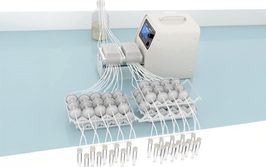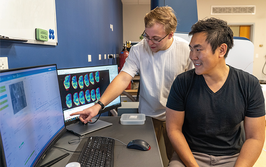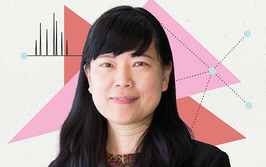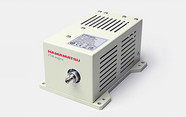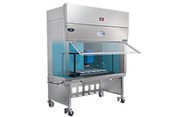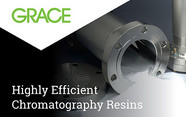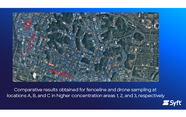
Pressure for Food Analysis?
Atmospheric Pressure Gas Chromatography reduces extensive fragmentation, enhancing sensitivity and selectivity for multi-residue analysis in food
Frank Dorman | 2 min read
sponsored by Waters
Gas and liquid chromatography coupled to mass spectrometry (GC-MS and LC-MS) play a vital role in pesticide residue analysis across various sample matrices. However, traditional electron ionization in GC-MS often results in extensive fragmentation, leading to the absence of molecular ions and larger-mass fragments which can negatively affect determination of certain pesticides. A more competitive commercial landscape – and the resulting need for increased productivity – are driving laboratories to constantly seek solutions to address these challenges.
Waters offers an alternative approach to GC- and LC-MS, known as Atmospheric Pressure Gas Chromatography (APGC™), which enhances molecular, and larger-mass, ions while significantly decreasing extensive fragmentation. The result? Enhanced sensitivity and selectivity.
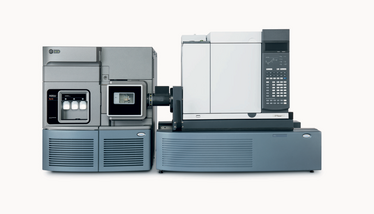
APGC technology can be used for various applications, including dioxins, furans, dioxin-like compounds (such as PCB’s and PCN’s), as well as pesticides. Compared with magnetic sector instruments, APGC-MS/MS offers a more user- and budget-friendly technology, making dioxin analysis more accessible to testing laboratories across the world – and, therefore, helping secure global and environmental food safety (1).
As its name suggests, APGC operates at atmospheric pressure, much like an APCI source that may be utilized in LC-MS analyses. It is also important to note that APGC relies on a soft ionization process to provide abundant molecular ions, which can serve as precursor ions in multiple reaction monitoring (MRM) experiments for multi-residue GC-MS/MS analysis.
“This is one of my favorite instruments. It’s highly sensitive and selective due to the soft ionization with APGC,” says Xinhui Xia, Senior Instrument Chemist at SGS AXYS, Canada (2). “It is easy to operate, and low maintenance compared with the magnet sector, which is a big benefit to routine analysis. Also, I am able to switch between methods without any difficulty.”
When APGC is coupled with the Xevo™ TQ-XS, the system is the most sensitive GC-MS/MS system commercially available, allowing the most difficult regulations to be met with ease. Indeed, the extremely high sensitivity of APGC technology coupled with the Xevo TQ-XS enables reliable detection of 166 tested analytes at concentrations as low as 0.5 μg/kg, which exceeds required detection limits, thus making it suitable for routine food testing laboratories (3). This enhanced sensitivity does not come at the expense of calibration range as 5-6 orders of linear dynamic range are routine with this technology.
APGC represents a valuable tool in food analysis, providing enhanced sensitivity, selectivity, and compatibility with both GC and LC compounds. As technology continues to evolve, APGC looks set to drive progress in multi-residue analysis, improving food safety.
Discover the power APGC has to offer in our whitepaper: Enhancing Selectivity and Sensitivity for Pesticide Residue Testing by GC-MS/MS Using APGC Technology.
- Waters Corporation, “SGS AXYS and Waters Validate APGC as New Methodology for Dioxin and Environmental Contaminants Analysis” (2020). Available at: https://bit.ly/45Vh4xO.
- Waters Corporation, “Dioxins and Furans” (2021). Available at: https://bit.ly/3zA9Pza.
- Waters Corporation, “Enhancing selectivity and sensitivity for pesticide residue testing by GC-MS/MS using APGC technology” (2023). Available at: https://bit.ly/45YsLUr.
Frank Dorman is Senior Principal Market Development Manager, Global Food & Environmental, Waters Corporation, Milford, MA, USA

